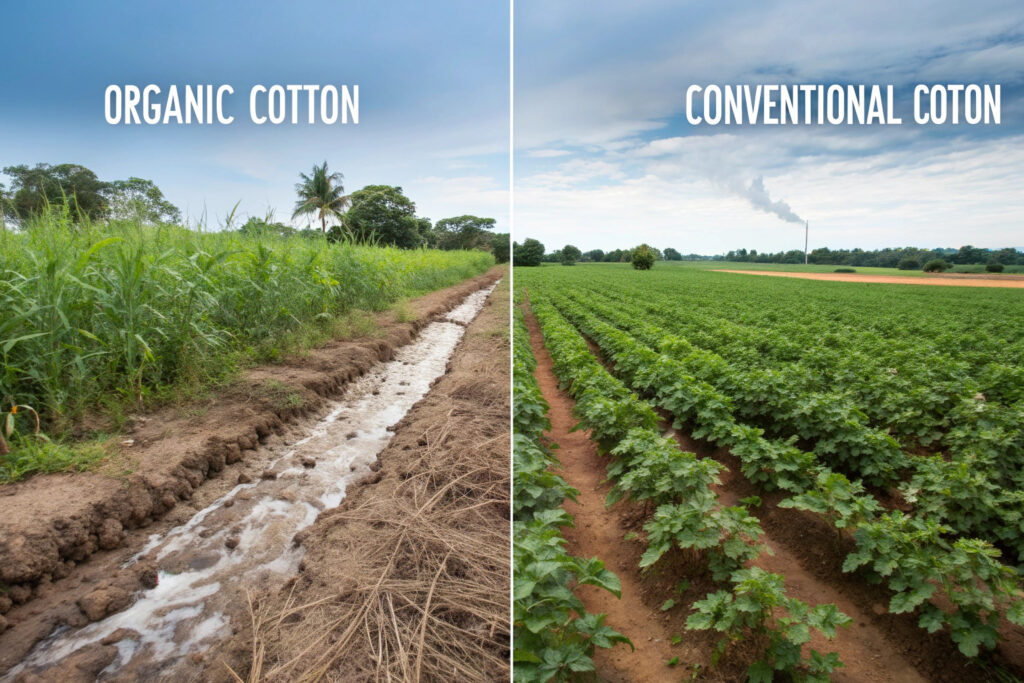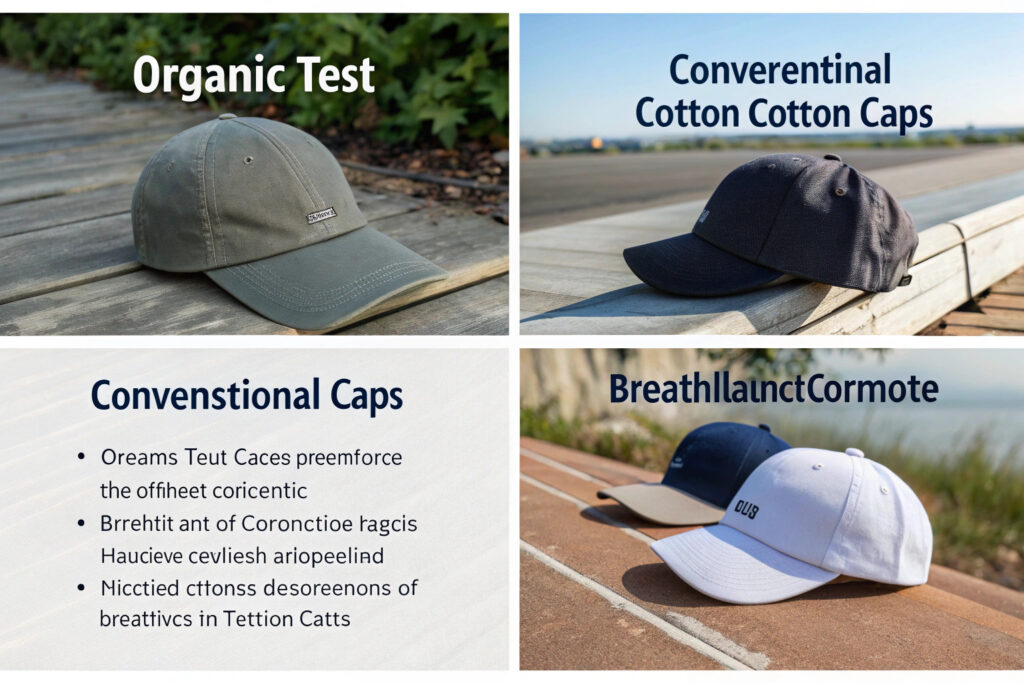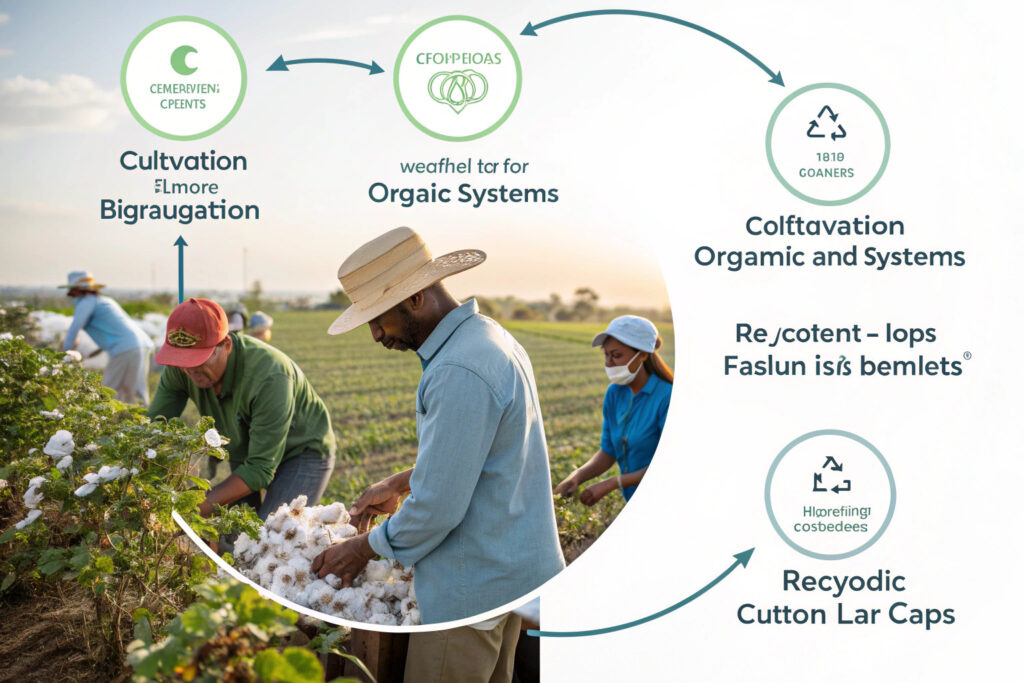The rise of organic cotton caps in eco-fashion represents more than just a trend—it's a fundamental shift in consumer consciousness and manufacturing practices. As sustainability becomes non-negotiable for fashion-forward consumers, organic cotton has emerged as the material of choice for headwear that aligns with environmental values without compromising style or quality.
Organic cotton caps dominate eco-fashion through their superior environmental credentials, enhanced consumer appeal, improved material properties, and alignment with circular economy principles. These caps offer a compelling combination of sustainability, comfort, and style that resonates with today's conscious consumers.
Understanding the multifaceted appeal of organic cotton caps reveals why they've become the cornerstone of sustainable headwear collections and how they're reshaping fashion industry standards.
What Environmental Advantages Drive Organic Cotton's Popularity?
The environmental benefits of organic cotton extend far beyond pesticide reduction, creating a compelling sustainability story that resonates with eco-conscious consumers and brands alike.
Organic cotton's environmental superiority encompasses water conservation, soil health, biodiversity protection, and climate impact reduction that collectively justify its premium positioning in eco-fashion.

How Does Organic Cotton Farming Conserve Water?
Organic cotton's water efficiency stems from agricultural practices that enhance soil water retention and reduce irrigation demands compared to conventional methods.
Organic farming methods increase soil organic matter, improving water retention capacity by up to 40% compared to conventional cotton fields. The absence of synthetic fertilizers reduces water contamination, preserving aquatic ecosystems. According to the Textile Exchange, organic cotton cultivation uses 91% less water than conventional cotton through rain-fed agriculture and improved soil moisture management. The Global Organic Textile Standard certification requires water conservation practices that significantly reduce the water footprint of cotton production. Our organic cotton caps source from farms implementing drip irrigation systems and water recycling practices that maximize efficiency.
What Soil Health Benefits Does Organic Cultivation Provide?
Organic cotton farming practices regenerate soil ecosystems, creating sustainable agricultural systems that benefit both environment and crop quality.
The prohibition of synthetic pesticides and herbicides in organic farming preserves soil microbiology essential for nutrient cycling. Crop rotation practices required by organic standards prevent soil depletion and reduce erosion rates. The use of compost and manure as natural fertilizers builds soil organic carbon, with organic fields typically containing 20-40% higher organic matter. Our supply chain partners document soil health improvements through regular testing, demonstrating how organic practices create regenerative agricultural systems that benefit future generations.
How Do Consumer Values Influence Organic Cotton Demand?
The shift toward organic cotton caps reflects evolving consumer priorities that extend beyond basic product features to encompass environmental impact and ethical production.
Modern consumers increasingly value transparency, sustainability, and health consciousness, driving demand for organic cotton products that align with these principles.

Why Does Transparency Drive Purchasing Decisions?
Today's consumers demand visibility into supply chains and production processes, making transparency a competitive advantage for organic cotton cap brands.
The traceability systems required for organic certification provide consumers with verified information about product origins. Brands using organic cotton can leverage blockchain technology and digital product passports to demonstrate supply chain integrity. Our organic caps include QR code tracking that allows consumers to access information about farm origins, manufacturing processes, and environmental impact. This level of supply chain transparency addresses growing consumer skepticism and builds brand trust through verifiable claims.
How Important is Health Consciousness in Material Choice?
Increasing awareness of chemical exposure through clothing drives consumers toward organic options perceived as safer and healthier for both wearers and agricultural workers.
Organic cotton caps contain no residual pesticides or toxic heavy metals that could transfer to skin during wear. The GOTS certification prohibits allergic dyestuffs and harmful chemicals throughout processing. Consumers with sensitive skin or chemical sensitivities particularly value organic cotton's purity guarantees. Our manufacturing processes use GOTS-approved dyes and biodegradable softeners that maintain the material's natural hypoallergenic properties while ensuring vibrant, long-lasting colors.
What Performance Advantages Do Organic Cotton Caps Offer?
Beyond environmental benefits, organic cotton provides tangible performance advantages that enhance wearer comfort and product durability, justifying its position in premium eco-fashion.
Organic cotton's natural fiber properties deliver superior comfort, breathability, and durability that meet consumer expectations for both sustainability and performance.

How Does Fiber Quality Impact Comfort and Durability?
Organic cotton farming practices produce stronger, longer fibers that translate to superior fabric quality and enhanced product performance.
The absence of chemical defoliants in organic farming allows cotton to mature naturally, developing longer staple fibers with greater strength. Organic cotton fibers maintain their natural wax coating, enhancing durability and reducing pilling compared to conventionally processed cotton. The minimal processing required for organic certification preserves fiber integrity, resulting in fabrics with better tear strength and abrasion resistance. Our organic cotton caps demonstrate 25-30% better color retention after repeated washing compared to conventional cotton, maintaining their appearance through extended use.
What Breathability Benefits Does Organic Cotton Provide?
Organic cotton's natural fiber structure offers superior breathability and moisture management, making it ideal for comfortable headwear across various climates.
The hollow fiber structure of organic cotton creates natural air channels that enhance ventilation and heat dissipation. Organic processing maintains the fiber's natural hygroscopic properties, allowing it to absorb up to 25% of its weight in moisture without feeling damp. The absence of chemical residues that can clog fiber pores ensures optimal moisture wicking and quick drying capabilities. Our organic cotton caps provide superior thermal regulation compared to synthetic alternatives, keeping wearers comfortable in both warm and cool conditions.
How Does Organic Cotton Support Circular Fashion?
Organic cotton's compatibility with circular economy principles makes it particularly valuable for brands building sustainable business models focused on longevity and recyclability.
Organic cotton facilitates circularity through biodegradability, recyclability, and durability that extends product lifespan and reduces fashion waste.

Why is Biodegradability Crucial for Sustainable Fashion?
Organic cotton's natural biodegradability ensures that caps can return safely to the environment at end-of-life, completing a sustainable product lifecycle.
Unlike synthetic fibers that persist in ecosystems for centuries, organic cotton biodegrades completely within months under proper conditions. The absence of toxic chemical residues in organic cotton allows safe composting and soil incorporation at end-of-life. Our organic caps meet biodegradability standards that verify safe decomposition without releasing harmful substances. This natural end-of-life pathway supports zero-waste fashion initiatives and reduces landfill burden.
How Does Organic Cotton Facilitate Recycling and Upcycling?
Organic cotton's purity and fiber strength make it ideal for recycling processes that create new textiles from post-consumer waste.
The consistent fiber quality of organic cotton enables efficient mechanical recycling into new yarns with minimal quality loss. The absence of chemical contaminants simplifies the recycling process and produces higher-quality recycled fiber. Our manufacturing includes recycled organic cotton blends that incorporate post-industrial and post-consumer waste while maintaining GOTS certification. The durability of organic cotton caps supports upcycling initiatives that transform worn caps into new products, extending material usefulness through multiple lifecycles.
Conclusion
Organic cotton caps dominate eco-fashion because they represent the perfect convergence of environmental responsibility, consumer values, product performance, and circular economy principles. Their comprehensive sustainability profile addresses multiple aspects of conscious consumption while delivering the quality and style expectations of modern fashion.
As consumer awareness grows and sustainability becomes increasingly integrated into fashion business models, organic cotton caps will continue leading the transition toward more responsible headwear that doesn't compromise on design, comfort, or durability.
Ready to develop organic cotton caps that capture the eco-fashion market? Contact our Business Director Elaine today to discuss sustainable material sourcing and manufacturing options. Her email is elaine@fumaoclothing.com. Let's create organic cotton caps that combine environmental leadership with fashion-forward design and uncompromising quality.







